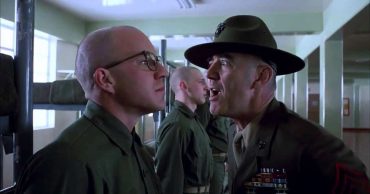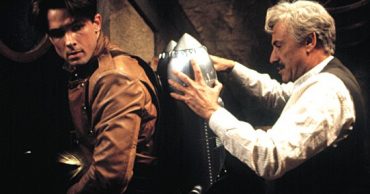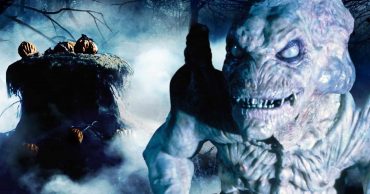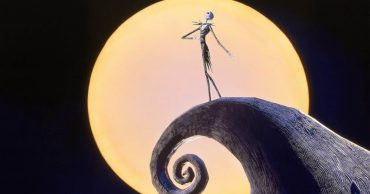Speak No Evil is the fourth feature film from English writer/director James Watkins (The Woman in Black). With a penchant for the suspenseful and eerie, Speak No Evil feels like the breakthrough moment for the filmmaker, amalgamating his signature styles in the horror and thriller genres into one slow-burning, incommodious vehicle. The movie has been met with positive reviews from critics and grossed just shy of $12 million in its opening weekend.
The James McAvoy-led horror-thriller tells the story of a family who visit another family they met on vacation. As they arrive at their remote countryside retreat, things soon take a dark and sinister turn when the family’s strange behaviours evoke fear and dread. Speak No Evil is a remake of the 2022 Danish film of the same name. This genre-bending movie reveals itself to be much more than a horror movie, delving into intense psychological themes amidst a contained and claustrophobic setting. So, if you enjoyed this movie, here are 5 films that strike a similar note.
5. Hush (2016)
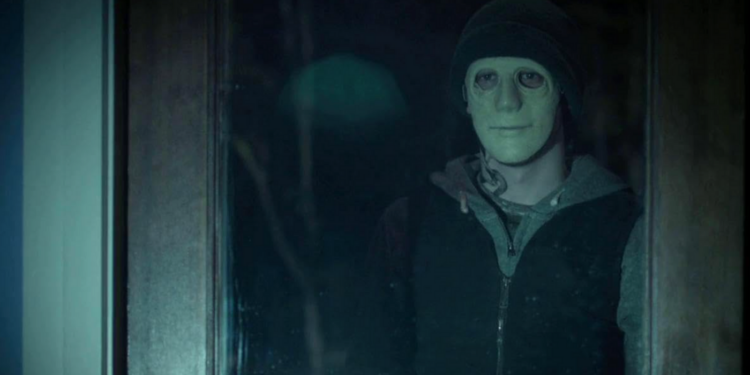
Hush is a 2016 horror movie that bears resemblance to Speak No Evil due to its overwhelming sense of dread and claustrophobic feel. Although the threat is much more immediate, this tense gem operates on a slow-burn that crescendos to terrifying chaos. Under the direction of Mike Flanagan (Doctor Sleep), Hush throws a suspenseful spin on the home invasion genre by centring on Kate Siegel‘s character Maddie, who is severely deaf.
The taut flick is set across one harrowing night in the home of Maddie, a successful novelist who lives alone in her secluded lakeside home. However, her peace and solitude is shattered when a masked intruder breaks in, intent on hunting her down. What makes Hush particularly gripping is its unique approach to suspense, as the audience is thrust into Maddie’s world of silence, forcing us to experience her fears in a deeply intimate way. Without the ability to hear her attacker’s movements, Maddie relies on her keen instincts and the power of her other senses to navigate this harrowing ordeal. As she fights for her survival, Hush transforms what could have been a standard thriller into an engaging and thought-provoking exploration of strength in silence.
4. Eden Lake (2008)
Eden Lake was released in 2008 and served as James Watkin’s feature film debut. Although the movie is much more brutal and violent than Speak No Evil, it’s easy to see how it was the stomping ground that allowed Watkins to hone his skills in suspense. This late “video nasty” immerses viewers in a terrifying story that questions the emergence of yob culture in England, a period characterised by societal turmoil and reckless youth violence. In the movie, Jenny (Kelly Reilly) and Steve (Michael Fassbender), a couple looking for a peaceful vacation at a calm lake, find their dream hideaway destroyed by a group of rowdy teens. The adversaries, led by the ominous Brett (Jack O’Connell in one of his early defining performances), express the raw, destructive energy of this dark transformation in society with a disturbing intensity.
As the couple’s attempt to escape devolves into a harrowing fight for survival, Eden Lake flips the traditional horror script by placing the menace in the hands of a youthful gang rather than a singular, adult villain. The film paints a disturbingly realistic portrait of a generation gone awry, where youthful bravado escalates into unrelenting cruelty, forcing the protagonists – and the audience – to confront the terrifying notion that danger can emerge not just from the shadows but from those who seem most innocuous. This unsettling cocktail of social commentary and visceral horror solidifies Eden Lake as a thought-provoking take on the genre, leaving viewers questioning the very nature of fear and violence in contemporary society.
3. The Gift (2015)
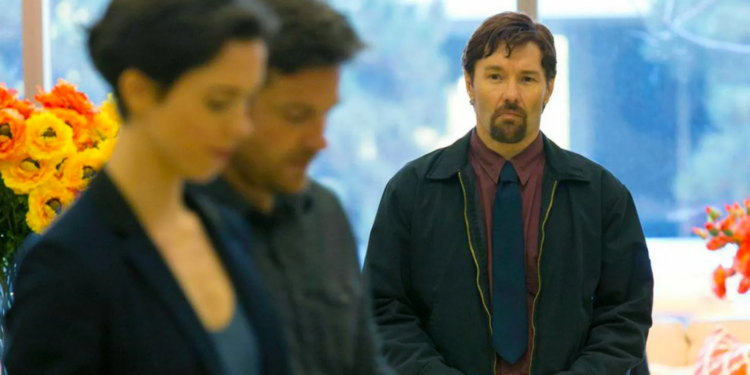
With its horror elements aside, Speak No Evil is a deep character study of both the protagonists and antagonists. As the quiet Dalton family start to question the motives of their hosts, they are thrust into a world of paranoia that also makes them question themselves. Another movie that explores such themes masterfully is 2015’s The Gift.
Joel Edgerton‘s feature film directorial debut is a masterfully crafted psychological thriller that intricately weaves together elements of mystery and suspense while delving into themes of moral ambiguity. The film centers on a young couple, Simon and Robyn, played by Jason Bateman and Rebecca Hall, whose lives take a dark turn when they encounter Gordo, a mysterious figure from Simon’s past portrayed chillingly by Edgerton himself. As Gordo befriends the couple and begins to invade their lives with unsettling gifts and increasingly intrusive behavior, the balance of power shifts in unexpected ways, forcing Simon to confront the secrets he’d long buried. The tension escalates in a Hitchcockian style, as the film meticulously unravels layers of psychology and manipulation, leaving audiences questioning the nature of revenge and the consequences of past actions. Edgerton’s dual role as director and lead actor enhances the unease, as he crafts a richly atmospheric narrative that challenges viewers to grapple with their sympathies and judgments.
2. The Invitation (2015)
The Invitation strikes a similar chord to Speak No Evil due to its slow-burning tension and its meticulous unraveling of mystery. Taking place in one home, it also has a claustrophobic feel akin to Speak No Evil. This psychological horror-thriller from director Karyn Kusama is a little-known film that deftly creates a suspenseful and ominous mood throughout. The story follows Will (Logan Marshall-Green) as he reluctantly goes to his ex-wife Eden’s opulent dinner party at her Hollywood Hills home she shares with her new husband David.
As the evening unfolds, Will becomes increasingly uneasy, sensing that something is amiss as old friends gather, and the hosts display peculiar behavior. The tension escalates with each passing moment, as whispers of a mysterious cult and Eden’s drastic personal transformation loom over the gathering. Kusama skillfully enhances the film’s psychological tension by meticulously crafting an intimate setting that gradually unravels into a nightmarish scenario. As the guests engage in increasingly disturbing conversations, the façade of civility crumbles, culminating in a chaotic and shocking finale that forces Will to confront the horrors of grief, manipulation, and trust.
1. Get Out (2017)
Get Out is a horror movie that re-defined the genre and flipped the script on such films being accepted by prestigious awards ceremonies like the Oscars. In terms of tone, it is hard to imagine that those who enjoyed Speak No Evil will not find this movie on par or even more engaging due to its underscore of social commentary. Released in 2017, Get Out marked a major shift for writer/director Jordan Peele who transitioned from comedy to horror.
This groundbreaking movie follows Chris, a young African American man, portrayed by Daniel Kaluuya, who is apprehensive about meeting his white girlfriend Rose’s family at their remote estate. What starts as an unsettling visit unravels into a harrowing nightmare as Chris discovers the family’s disturbing secret – a sinister plot that exploits Black bodies and minds for their own gain. Peele’s masterful storytelling employs elements of horror to explore themes of racism, exploitation, and cultural appropriation, making the film not just a thrilling experience, but a profound examination of systemic issues in contemporary society. Get Out was not only a critical and commercial success, earning Peele an Academy Award for Best Original Screenplay, but it also signaled his emergence as a distinctive voice in horror, paving the way for subsequent projects that continued to tackle social commentary through the lens of genre filmmaking, such as Us and Nope.
Read Next: Our Guide to A24’s Top Horror Movies
 Follow Us
Follow Us
